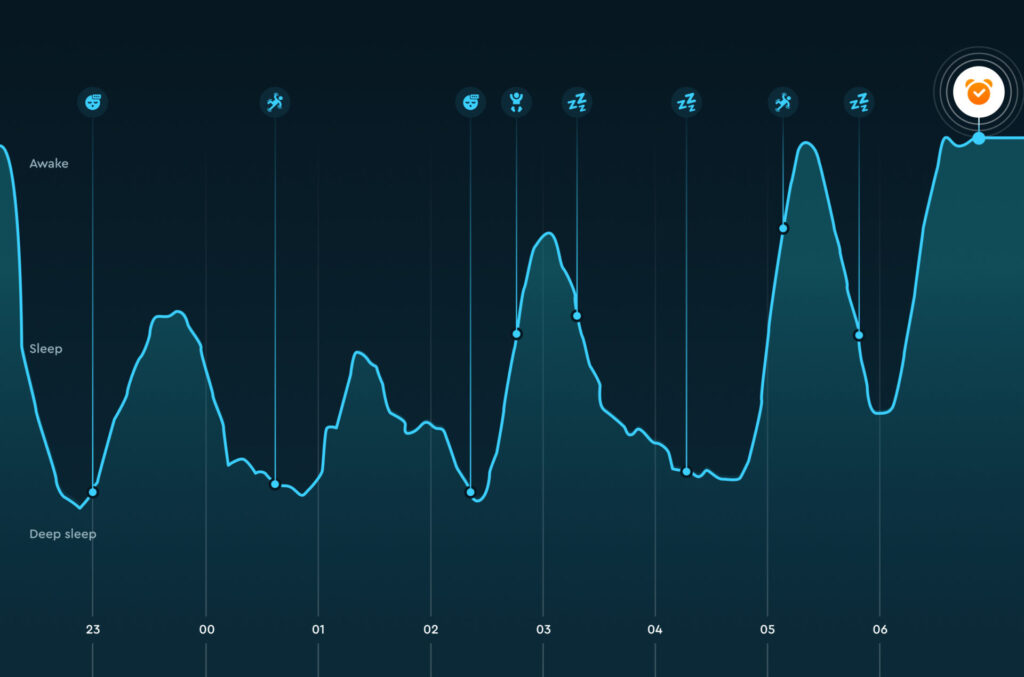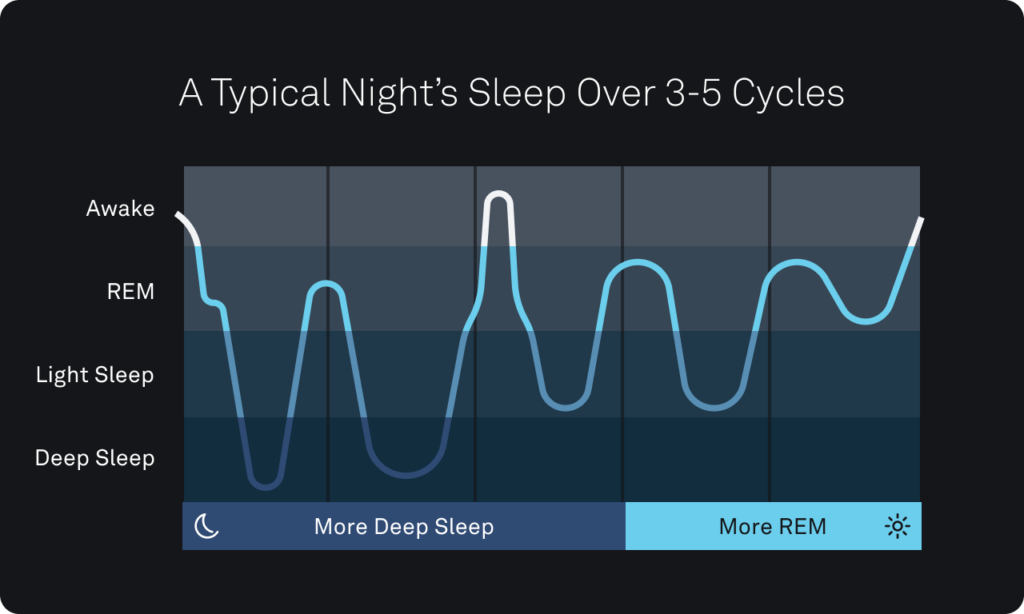Sleep is a fundamental aspect of our lives, essential for our overall health and well-being. However, many of us often overlook the importance of understanding our sleep patterns. By gaining insight into how we sleep, we can identify potential issues or disruptions that may be affecting our quality of rest. This is where a sleep test becomes invaluable.
Understanding the Basics of Sleep
Sleep is a fascinating and complex physiological process that plays a vital role in our daily lives. The sleep study test shows it involves a series of intricate stages and cycles that enable our bodies and minds to recharge and rejuvenate. By comprehending the science behind sleep, we can appreciate its profound impact on our health.
Not only does sleep help us feel refreshed and alert, but it also plays a crucial role in memory consolidation. During sleep, the brain processes and stores information from the day, strengthening neural connections that are essential for learning and retaining new knowledge. This is why a good night’s sleep is often recommended before exams or important events that require cognitive performance. You can visit https://landaeyecare.com/convenience-at-home-sleep-apnea-test-in-australia to get about sleep apnea test convenience at home.
The Science of Sleep
Sleep is regulated by a complex interplay between various factors, including hormones, neurotransmitters, and internal body clocks. When we sleep, our bodies undergo crucial restorative processes, such as tissue repair, growth, and memory consolidation. Additionally, sleep plays a significant role in regulating our metabolism and immune function.
Furthermore, sleep is essential for emotional well-being and mental health. Lack of sleep has been linked to mood disorders such as depression and anxiety. During deep sleep stages, the brain processes emotions and helps regulate mood, highlighting the importance of quality sleep for overall psychological wellness.
The Different Stages of Sleep
Sleep consists of several stages, each with unique characteristics and functions. The two main types of sleep are rapid eye movement (REM) sleep and non-REM sleep. Non-REM sleep is further divided into three stages: N1, N2, and N3. Understanding the distinct features of these stages can help us better comprehend our sleep patterns.
REM sleep, also known as dreaming sleep, is characterized by rapid eye movements, increased brain activity, and vivid dreams. This stage is crucial for cognitive function, emotional regulation, and creative problem-solving. Non-REM sleep, on the other hand, is essential for physical restoration, with deep N3 sleep being the most restorative stage where growth hormone is released, repairing tissues and muscles.
The Role of Sleep in Health and Well-being
Quality sleep is crucial for maintaining optimal physical and mental health. It is during sleep that our bodies repair and rejuvenate, ensuring that we wake up feeling refreshed and energized.
Furthermore, the importance of sleep extends beyond just feeling rested. While we sleep, our bodies go through various stages of rest, including deep sleep and REM (rapid eye movement) sleep. During these stages, our brains consolidate memories, process emotions, and regulate various bodily functions. Without sufficient and quality sleep, these processes can be disrupted, affecting our cognitive abilities and emotional well-being.
Sleep and Physical Health
Research has consistently shown that poor sleep is associated with an increased risk of various physical health issues, including obesity, cardiovascular diseases, and diabetes. By monitoring our sleep patterns, we can identify any potential disruptions and take appropriate measures to improve our physical well-being.
In addition to the risks mentioned, inadequate sleep can also weaken our immune system, making us more susceptible to illnesses and infections. This highlights the crucial role that sleep plays in supporting our body’s defense mechanisms and overall physical resilience.
Sleep and Mental Health
The relationship between sleep and mental health is bidirectional. Just as a lack of sleep can contribute to mental health disorders such as anxiety and depression, mental health conditions can also disrupt our sleep patterns. Understanding our own sleep patterns can provide valuable insight into our mental well-being and help us address any issues we may be facing.
Moreover, the impact of sleep on mental health goes beyond just mood disorders. Chronic sleep deprivation has been linked to cognitive impairments, such as difficulties with concentration, decision-making, and problem-solving. By prioritizing good sleep hygiene and addressing any sleep-related issues, we can support our cognitive functions and overall mental well-being.

What is a Sleep Test?
A sleep test, also known as a polysomnography, is a diagnostic tool used to evaluate and monitor an individual’s sleep patterns and identify any potential sleep disorders. It involves monitoring various physiological parameters during sleep, such as brain waves, heart rate, breathing patterns, and oxygen levels. By undergoing a sleep test, we can gain valuable information about our sleep quality and identify any underlying issues.
Understanding the importance of a sleep test is crucial in maintaining overall health and well-being. Sleep plays a vital role in our daily functioning, affecting cognitive performance, mood regulation, and overall physical health. By pinpointing any disruptions in our sleep patterns through a sleep test, individuals can work towards improving their sleep quality and overall quality of life.
The Process of a Sleep Test
A sleep test typically takes place in a specialized sleep center or can even be conducted at home with portable monitoring devices. During the test, electrodes and sensors are attached to the body to record essential data. This process is painless and non-invasive, allowing the individual to sleep naturally while their sleep patterns are monitored and analyzed.
Moreover, the data collected during a sleep test is meticulously reviewed by sleep specialists and healthcare professionals. They analyze the information gathered throughout the night to identify any abnormalities or disturbances in the individual’s sleep architecture. This detailed analysis helps in formulating personalized treatment plans to address specific sleep issues and improve overall sleep quality.
Types of Sleep Tests
There are different types of sleep tests, depending on the specific sleep issues being investigated. These may include overnight sleep studies, multiple sleep latency tests, or maintenance of wakefulness tests. By determining the most appropriate type of sleep test for an individual, healthcare professionals can gather the necessary data to make accurate diagnoses and provide tailored treatment plans.
Each type of sleep test serves a unique purpose in evaluating different aspects of sleep health. For example, overnight sleep studies are beneficial in diagnosing conditions like sleep apnea, while multiple sleep latency tests help assess daytime sleepiness levels. By utilizing a combination of these tests, healthcare providers can gain a comprehensive understanding of an individual’s sleep patterns and provide comprehensive care.
Interpreting Your Sleep Test Results
Once the sleep test is completed, the data collected is carefully analyzed by qualified sleep specialists. They interpret the results, looking for abnormalities or patterns that may indicate the presence of a sleep disorder. Understanding the significance of these results is crucial for optimizing our sleep health.
After the sleep specialists have analyzed the data from your sleep test, they delve into a detailed examination of various parameters such as total sleep time, sleep efficiency, and the number of awakenings during the night. These metrics provide a comprehensive overview of your sleep quality and help in pinpointing areas that may need improvement.

Understanding Sleep Cycles and Patterns
A sleep test provides valuable information about our sleep cycles and patterns. It reveals the duration and distribution of each sleep stage throughout the night, highlighting any irregularities or disruptions. By interpreting these patterns, we can identify potential underlying issues and take appropriate steps to improve our sleep quality.
Moreover, the analysis of sleep cycles can offer insights into the efficiency of your sleep architecture. Understanding the proportion of time spent in each sleep stage, from light sleep to deep sleep and REM (rapid eye movement) sleep, aids in assessing the overall restorative nature of your sleep.
Identifying Sleep Disorders
One of the primary purposes of a sleep test is to diagnose sleep disorders such as insomnia, sleep apnea, or restless leg syndrome. By understanding our sleep test results, we can gain insight into our specific sleep-related issues and work towards finding effective solutions or treatments.
Furthermore, the identification of specific sleep disorders through these test results enables healthcare providers to tailor treatment plans to address individual needs effectively. Whether it involves lifestyle modifications, therapy, or medical interventions, a targeted approach can significantly enhance your sleep quality and overall well-being.
The Impact of Sleep Patterns on Daily Life
Our sleep patterns have a significant influence on our daily lives, impacting various aspects of our overall well-being, productivity, and mood. By understanding how our sleep patterns relate to these factors, we can make informed decisions to improve our daily functioning.
Furthermore, the quality of our sleep is just as important as the quantity. Deep, restorative sleep plays a crucial role in memory consolidation, muscle repair, and hormone regulation. During the different stages of sleep, our bodies undergo processes that are essential for physical and mental rejuvenation. Therefore, prioritizing both the duration and quality of our sleep is key to maximizing its benefits on our daily life.
Sleep Patterns and Productivity
Studies have consistently shown that adequate sleep significantly enhances our cognitive abilities, attention span, and problem-solving skills. By optimizing our sleep patterns, we can improve our productivity and overall performance in both personal and professional spheres.
Moreover, establishing a consistent sleep schedule can help regulate our body’s internal clock, known as the circadian rhythm. This rhythm influences various physiological processes, such as hormone release, body temperature, and metabolism. By aligning our sleep patterns with our circadian rhythm, we can experience improved alertness and productivity throughout the day.
Sleep Patterns and Mood
There is a strong correlation between sleep patterns and mood regulation. Getting sufficient restful sleep promotes emotional stability, while sleep deprivation can lead to irritability, mood swings, and even mental health disorders. By understanding and managing our sleep patterns, we can positively impact our mood and emotional well-being.
Additionally, incorporating relaxation techniques into our bedtime routine can help alleviate stress and promote better sleep quality. Activities such as meditation, deep breathing exercises, or gentle stretches can signal to our bodies that it is time to unwind and prepare for rest. By reducing stress levels before sleep, we can enhance the overall effectiveness of our sleep patterns on our mood and mental health.
